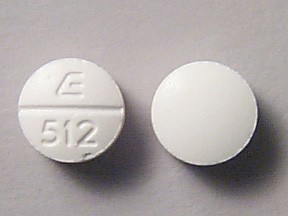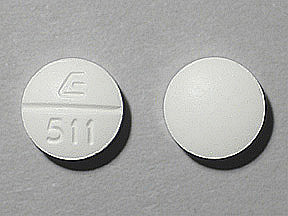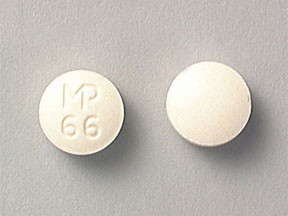QUINIDINE - ORAL
PHONETIC PRONUNCIATION: (KWIN-i-deen)
COMMON BRAND NAME(S): Quinidex
GENERIC NAME(S): quinidine sulfate
Uses
USES: This medication is used to treat or prevent many types of irregular heartbeats (heart arrhythmias such as atrial fibrillation). Quinidine can greatly improve your ability to perform normal activities by decreasing the number of irregular heartbeats you have. However, it may not stop all your irregular heartbeats completely. It works by blocking abnormal heartbeat signals. Before and while you are using quinidine, your doctor may prescribe other medications (e.g., "blood thinners"/anticoagulants such as warfarin, beta blockers such as metoprolol) to shrink any blood clots in the heart and to slow your pulse.
How to use QUINIDINE - ORAL
HOW TO USE: Before starting this drug, the manufacturer recommends that you take a test dose (usually a smaller amount than your regular dose) to determine whether you are allergic to it. Consult your doctor or pharmacist for details. Take this medication by mouth with or without food with a full glass of liquid (8 ounces/240 milliliters) as directed by your doctor. This medication is best taken on an empty stomach, but taking it with food may help decrease stomach upset. Do not lie down for at least 10 minutes after taking this medication. Do not crush or chew extended-release tablets. Doing so can release all of the drug at once, increasing the risk of side effects. Also, do not split the tablets unless they have a score line and your doctor or pharmacist tells you to do so. Swallow the whole or split tablet without crushing or chewing. There are different brands and forms of this medication available. Not all have identical effects. Do not change quinidine products without talking to your doctor or pharmacist. Dosage is based on your medical condition and response to treatment. If you are taking regular-release quinidine for an irregular heartbeat, the manufacturer recommends that you take no more than 4 grams daily. Avoid eating grapefruit or drinking grapefruit juice while being treated with this medication unless your doctor instructs you otherwise. Grapefruit juice can change the amount of certain medications in your bloodstream. Consult your doctor or pharmacist for more details. Avoid large changes in your dietary salt intake while being treated with this medication unless your doctor instructs you otherwise. The amount of salt in your diet may affect the amount of quinidine absorbed by your system. Consult your doctor or pharmacist for more details. Use this medication regularly to get the most benefit from it. To help you remember, take it at the same time(s) each day. Tell your doctor if your condition does not improve or if it worsens.
Side Effects
Precautions
Interactions
Overdose
Images
Reviews
Faq for QUINIDINE - ORAL
Quinidine is a medication used to treat certain types of irregular heart rhythms (arrhythmias). It belongs to a class of medications known as antiarrhythmics.
Quinidine works by affecting the electrical activity in the heart, helping to restore a normal rhythm. It slows down the electrical signals in the heart, which can be helpful in treating irregular heart rhythms.
Quinidine is used to treat various types of irregular heart rhythms, including atrial fibrillation, atrial flutter, and ventricular arrhythmias.
Quinidine is usually taken by mouth, as a tablet or capsule. It is typically taken every 4 to 8 hours, as directed by a healthcare professional.
Common side effects of quinidine may include diarrhea, stomach pain, nausea, vomiting, headache, dizziness, or blurred vision.
Yes, quinidine can cause serious side effects such as changes in heart rhythm, low blood cell counts, allergic reactions, and liver problems. It is important to seek immediate medical attention if you experience symptoms such as chest pain, fainting, sudden severe headache, or signs of an allergic reaction.
Quinidine can interact with a variety of medications, including other antiarrhythmics, certain antibiotics, antifungal medications, antidepressants, and anticoagulants. It's important to inform your healthcare provider about all the medications you are taking to avoid potential interactions.
Quinidine is not suitable for everyone. People with certain heart conditions, a history of blood disorders, liver or kidney problems, or certain allergies may not be able to take quinidine. It is important to consult a healthcare professional before starting this medication.
Quinidine should be used during pregnancy only if clearly needed, as its effects on the unborn baby are not well established. It may also pass into breast milk, so it's important to consult a healthcare provider if you are pregnant or breastfeeding.
Warning
WARNING: Before taking this drug for treatment of an irregular heartbeat, you should discuss your risks and benefits of treatment with your doctor or pharmacist. This drug should be used only in carefully selected patients. Many heart drugs like quinidine (antiarrhythmics) are very effective, but they can rarely cause new serious (possibly fatal) irregular heartbeats.
Disclaimer
IMPORTANT: HOW TO USE THIS INFORMATION: This is a summary and does NOT have all possible information about this product. This information does not assure that this product is safe, effective, or appropriate for you. This information is not individual medical advice and does not substitute for the advice of your health care professional. Always ask your health care professional for complete information about this product and your specific health needs.



No Reviews Yet